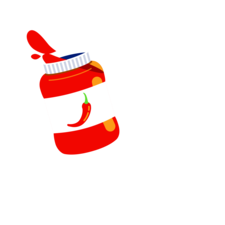Installa Steam
Accedi
|
Lingua
简体中文 (cinese semplificato)
繁體中文 (cinese tradizionale)
日本語 (giapponese)
한국어 (coreano)
ไทย (tailandese)
Български (bulgaro)
Čeština (ceco)
Dansk (danese)
Deutsch (tedesco)
English (inglese)
Español - España (spagnolo - Spagna)
Español - Latinoamérica (spagnolo dell'America Latina)
Ελληνικά (greco)
Français (francese)
Indonesiano
Magyar (ungherese)
Nederlands (olandese)
Norsk (norvegese)
Polski (polacco)
Português (portoghese - Portogallo)
Português - Brasil (portoghese brasiliano)
Română (rumeno)
Русский (russo)
Suomi (finlandese)
Svenska (svedese)
Türkçe (turco)
Tiếng Việt (vietnamita)
Українська (ucraino)
Segnala un problema nella traduzione
































I have heard of the Return to World campaign recently and have been thinking of playing World for a bit again, but I've been casually enjoying and catching up on the wonders of Rise's GS. Wirebugs are cool and all, but I really do miss getting those juicy hits with GS and HH in World and doing stuff like using the slinger to redirect a TCS into a monster's face on a dime.
Came back to MHW after the surge in player numbers, did Fatalis and is consistently farming Evil Eyes with a Frostcraft Crit Draw build, and it's still nice to have a GS guide that acts as a refresher for the basics. While Crit Draw is comfy, Tackling through big hits is more exciting, and nothing is more romantic than a connection between a monster's head and a fully charged TCS. I never tire of seeing parts break off of a scary apex predator of a post-apocalyptic world from the sheer force of a swung heavy slab of metal.
Why waste time make many hits when one hit do trick?
I wouldn’t worry too much about it until after the main story and you can always just build a nice budget ice GS build with the Fish or Velkhana GS for that particular hunt (or go full raaaaw).
Status GSs are considered better than Elemental GSs because endgame GSs (before Fatalis) like Safi's GS and Lightbreak Blade come with high raw and the side bonus of status infliction. It's not the main attraction, but getting a few TCSs from Sleep/Para or a freebie 300 damage from a Blast proc is a nice asset to have.
I remember doing an arena quest with a GS loadout featuring the Slinger Capacity skill. In retrospect, it was really useful as GS because wallbanging normally leaves us with no ammo after for Slinger Burst.
I almost forgot about Airborne getting a buff in Iceborne too, since I usually only use it with Glaive when I'm not using Mind's Eye (bugstick vs donkey kong go bouncy bounce like a chest during PE). The amount of damage we gain back on aerial GS is pretty phantastic for the low cost of a single level 2 gem.
I'll add these skills to Section 4 along with some other changes after I proofread the guide again. Thanks for the noteworthy mentions and compliment!